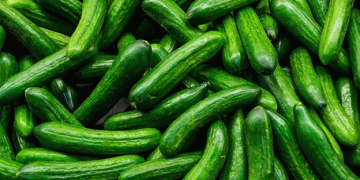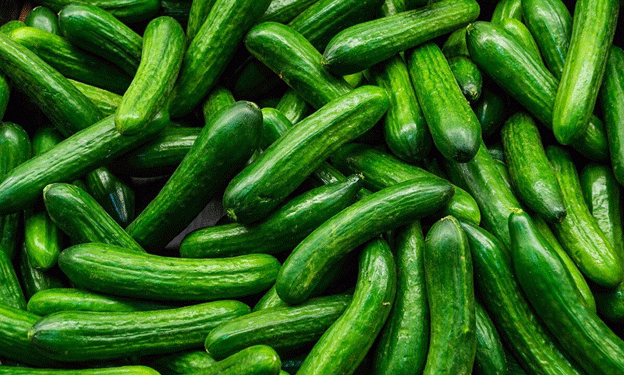Cucumber farmers across Poland are grappling with the devastating effects of an unusually challenging growing season. This year, bacterial infections and fungal diseases have taken a heavy toll on cucumber crops, leading to a significant reduction in yields. The hot and humid weather conditions that prevailed during the summer months created an ideal environment for the rapid spread of these diseases, leaving many fields barren much earlier than usual.
A Season Cut Short by Disease
In a typical year, Poland’s cucumber season lasts about a month, offering farmers enough time to harvest and market their produce. However, this year’s season was abruptly shortened, with many growers reporting that their harvests ended after just a week. The primary culprits behind this collapse were fungal diseases such as powdery mildew (Oomycetes Peronosporaceae) and bacterial infections like bacterial leaf spot (Pseudomonas syringae). These pathogens thrived in the high temperatures and humidity, which were prevalent throughout the summer, accelerating the spread and severity of the diseases.
Impact on Farmers and the Agricultural Sector
The premature end of the cucumber season has had significant economic repercussions for Polish farmers. Cucumber is a staple crop in many regions, and the loss of a large portion of the harvest means reduced income for farmers who depend on this crop for their livelihood. The cost of managing the outbreak, including the use of fungicides and other control measures, has further strained their finances. In some cases, entire fields were lost, leaving farmers with no option but to prepare for the next planting season with uncertainty and financial hardship.
Compensating with Imports
As domestic cucumber production has plummeted, Poland has turned to imports to fill the gap and meet consumer demand. In the first four months of 2024, Poland imported 38,000 tons of cucumbers, a record high for this period. The majority of these cucumbers were sourced from Spain (13,850 tons), Greece (7,690 tons), and Germany (4,980 tons). These imports are crucial for maintaining market stability and ensuring that cucumbers remain available to consumers despite the domestic shortfall.
Future Implications and Lessons Learned
The devastation of this year’s cucumber harvest in Poland underscores the vulnerability of crops to changing weather patterns and the diseases they promote. As climate change continues to influence weather conditions, the agricultural sector may need to adapt by investing in disease-resistant crop varieties, improving disease management practices, and enhancing monitoring systems to detect and respond to outbreaks more swiftly.
For Polish cucumber farmers, this season has been a harsh reminder of the importance of resilience and adaptation in agriculture. Moving forward, a greater emphasis on research, education, and support for sustainable farming practices will be essential to mitigate the risks posed by climate-related challenges and to safeguard future harvests.
The cucumber season in Poland has been severely disrupted by bacterial infections and fungal diseases, leading to a substantial reduction in crop yields. With harvests ending prematurely, the country’s reliance on imports has increased to meet consumer demand. The events of this season highlight the urgent need for adaptive measures in agriculture to cope with the growing threats posed by climate change and the diseases it fosters.































